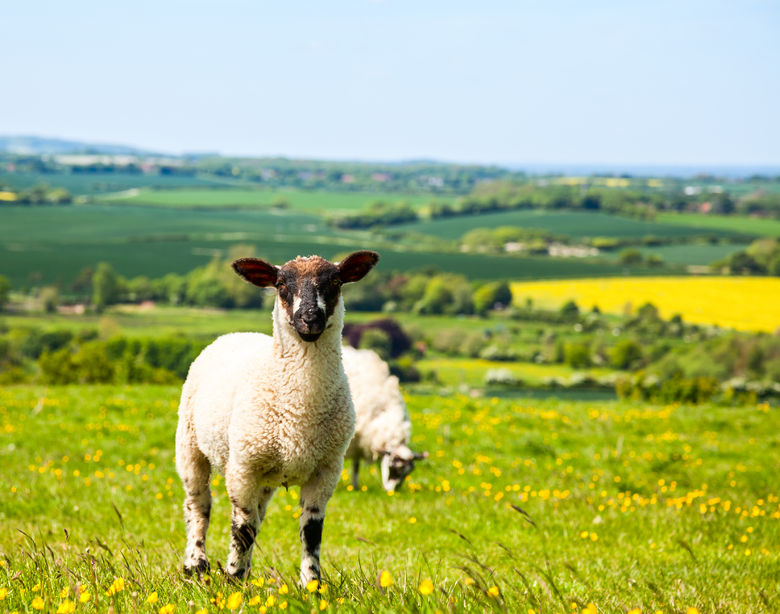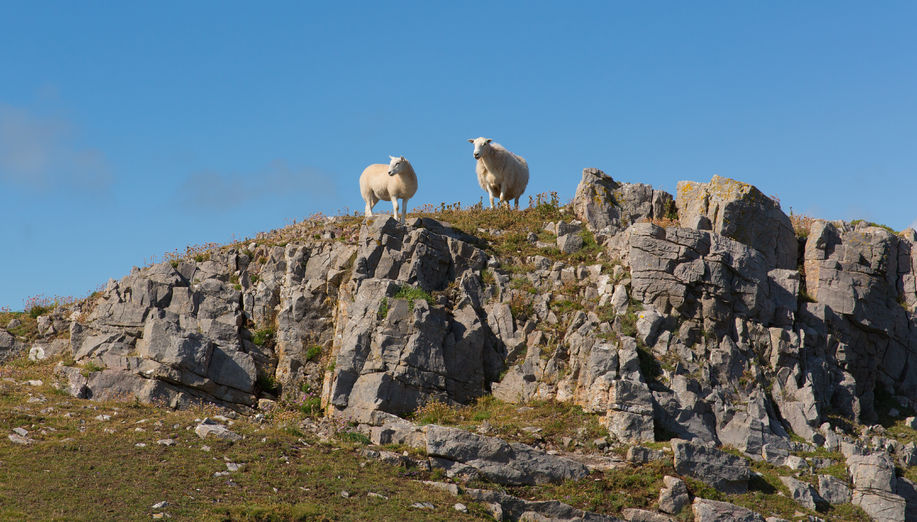Boost to British farmers as UK imports substantially less lamb

Imports of lamb into the United Kingdom are down substantially so far this year, helping to boost British producers.
AHDB reports that the volume of sheep meat imported into the UK in February was down 36 per cent compared with the same period last year.
February imports amounted to 5,800 tonnes, and was the lowest level for February since 2012 and the second month in a row that import volumes were down.
In the first two months of the year, imports to the United Kingdom fell by 26 per cent compared with 2016. The total volume for January and February was 12,100 tonnes.
'Perfect set of circumstances'
Peter Hardwick, head of exports at AHDB said that the fall in imports was the result of a "perfect set of circumstances" that included weaker Sterling driving up the price of imports, lower production in New Zealand and a larger volume of lamb in the UK.
"It has been good news for UK farmers," said Mr Herdwick, who said that exchange rates had made British lamb more competitive, securing more exports as well as extra sales at home.
While imports declined during February, exports rose by 10 per cent on the previous year to 5,600 tonnes. This increase came despite a decline in volumes going to France, which is the UK’s largest export market.
French shipments were down seven per cent, but AHDB says that his has been more than offset by large increases in sales to other markets, such as Germany, where exports were up by 34 per cent, Ireland, which took 62 per cent more British lamb and Belgium, where exports increased by six per cent.

Average export prices were also up slightly, meaning that the overall value of exports was up by 11 per cent to £23 million, says AHDB.
Decline in New Zealand lamb
February is usually a month when imports begin to rise, but there was a 43 per cent decline in shipments from New Zealand.
Exports to the United Kingdom from New Zealand amounted to 4,200 tonnes. The weak pound meant that New Zealand lamb could not remain as competitive on the UK market.

Volumes coming from other major suppliers, such as Australia and Ireland, were also lower. Imports from Australia were down by 13 per cent and Irish exports to the UK fell by four per cent.
The average import price was up by 14 per cent, meaning that the overall value of imports was down 27 per cent to £26.7 million.
Peter Hardwick said that the greater availability of domestic lamb helped to reduce imports. He said there had been an increased number of lambs carried over from last year in the UK.
There was an increase of seven per cent in the number of lambs on farm, which coincided with a fall in production in New Zealand. The New Zealand lamb crop hit its lowest level for 60 years in 2016.
Looking to China
Mr Hardwick said that whilst the exchange rate had made New Zealand's exports to the UK more expensive, the country's sheep producers had other markets it could sell to and China, in particular, was one market to which it was increasing sales.
An AHDB report said that during the first two months of this year New Zealand had made large gains in exports to China, the country's largest market.
Volumes going there were 24 per cent higher, at 35,800 tonnes, as trade took off for the Chinese New Year celebrations.
There were increases in exports to the United States - up by 22 per cent - and sales to Malaysia more than doubled.
Lamb production in New Zealand had begun to fall again in March, said the report.
"The currency situation remains in a similar state to that seen in the previous two months and production in the UK is thought to have remained at a high level.
"These factors would suggest that the pressure on New Zealand shipments to the UK has continued in March, when much of the exports for Easter will have taken place."
Whether volumes coming to the UK for the Easter period had fallen remained to be seen, it said. However there would continue to be severe pressure on margins of producers and processors, said the report.
Largest UK competitor
New Zealand is the largest competitor to UK lamb on the domestic market.
Shortly before the dissolution of Parliament, MP Neil Parish, the chairman of the Parliamentary Environment, Food and Rural Affairs Committee, wrote to the British Retail Consortium (BRC) calling for retailers to support British lamb.
"I trust that you are calling on UK supermarket retailers and the rest of the supply chain to champion British products at home and overseas, supporting those who work in the British lamb sector," he said in the letter.
"I would welcome assurances from you that UK retailers are supporting and promoting British lamb with consumers and ensuring that British lamb products are not undercut by cheaper imported products or promotions."
His letter was addressed to the chief executive of the BRC, Helen Dickinson.








